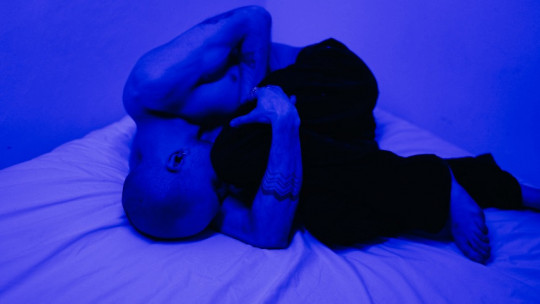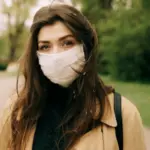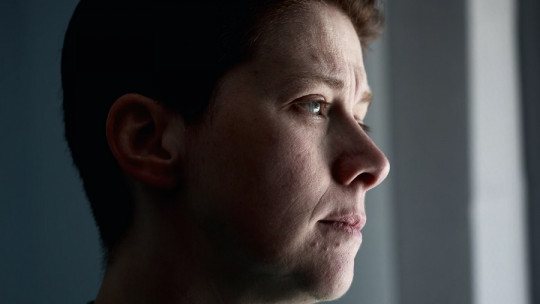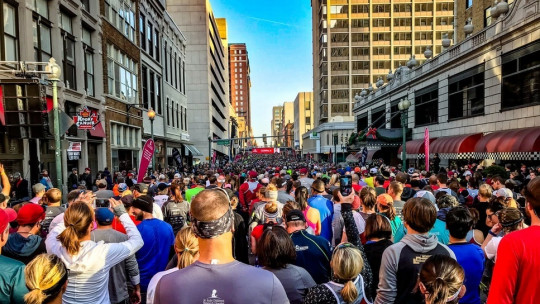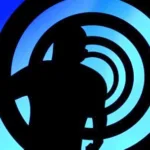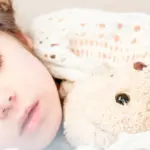Anxiety is a phenomenon as common and frequent in the population as it is diverse in its ways of expressing itself.
In fact, it sometimes triggers psychological alterations that go beyond anxiety disorders, overlapping with psychopathologies of all kinds, to which it contributes.
Here I will talk about the relationship between excessive anxiety and the appearance of the disorder known as nocturnal panic a parasomnia similar to sleepwalking.
What do we understand by anxiety?
Anxiety is a set of psychological and physiological phenomena that They keep our nervous system in a highly activated state , sometimes with excessive intensity. Normally, anxiety appears when faced with situations that involve real or imagined danger, or when faced with the idea that if we do not act quickly, we will miss an important opportunity.
This activation has different implications for what the person with anxiety feels and does: they experience greater sensitivity to unexpected stimuli, they tend to react to them suddenly and without having thought about it, they have difficulty staying completely still, and it is more prone to being irritable with others.
On the other hand, When anxiety reaches a very high degree of intensity, the following symptoms appear :
When is anxiety a problem?
So far we have seen what anxiety is, but we have not yet seen what the line is that separates normal anxiety from that which is problematic. This distinction is not always simple, and to understand it it is necessary to understand the origin of anxiety.
The entire set of biological and behavioral mechanisms that constitute anxiety are produced by evolution and natural selection. These are survival resources that have allowed our ancestors to react quickly to avoid danger and stay alive in all types of hostile environments. In fact, the ability to develop anxiety is so important that it is present in practically all the most evolved animals.
However, while anxiety gives us a push in the right direction to survive thanks to our ability to react in time without having to think twice when the latter is not an option, it can also lead to problems. In fact, Sometimes our way of reacting to anxiety causes us to cause it to ourselves and the main problem becomes that state of activation.
For example, many people deal with anxiety by binge eating or using drugs, which in turn makes their situation worse and makes them more likely to continue experiencing anxiety within hours. And on the other hand, when anxious processes are a constant in our lives, they wear us down physically and psychologically and can give way to other psychological disorders. This occurs, for example, with sleep disorders. Which leads us to talk about nighttime panic.
What is night panic?
Night panic, also called night terror, is a sleep disorder that is part of the group of parasomnias, characterized by the appearance of abnormal movement patterns or psychopathological conditions that occur involuntarily, without the person having fully recovered consciousness. In this sense, nocturnal panic is a bit similar to sleepwalking, since it is expressed while the person sleeps and in a certain sense, when it does, it may seem that the person is awake.
However, what most distinguishes the night terror is the expression of high anxiety or fear reactions, and disruptive, sometimes even aggressive movements. When the night terror is expressed through its symptoms, the person appears to wake up suddenly, screaming and/or with an expression of fear on the face and in the gestures; It is common for those affected to stand upright in bed, showing a lot of muscle tension.
However, they will not do all this in a conscious state, but will remain in a state of semi-consciousness in which they will not be able to speak with others or reason. Plus, once they’re fully awake, they probably won’t remember what happened.
The night panic It is an alteration that occurs mainly during childhood, but in some cases remains until adulthood.
The relationship between both psychological problems
As with all psychological disorders, there is no single cause that explains the appearance of nighttime panic, but rather there is a combination of factors that reinforce each other and give rise to this symptomatology.
However, it is known that The presence of a state of high anxiety facilitates the appearance of this parasomnia. This may be because the predispositions that make us anxious during the day act at night, altering the natural transition from one phase of sleep to the next, affecting the functioning of the vegetative nervous system, which is responsible for a good part of the unconscious movements that occur. We perform.
And when the nervous system tends to be highly activated, sleep is more likely to be shallow and there are times when we wake up in the middle of the night, and this same predisposition acts by exposing us to parasomnias.
So, Solving anxiety management problems helps you sleep well and without symptoms of nighttime panic. so in cases like this it is advisable to go to psychotherapy.
Are you looking for psychological assistance?

If you have sleep or anxiety-related problems or are experiencing other stress-related problems, I invite you to contact me. I am a psychologist specialized in the cognitive-behavioral intervention model and I have been helping people with anxiety-type psychological disorders and other forms of psychological disorders with emotional or behavioral roots for years. On this page you will find more information about how I work, and my contact information.

